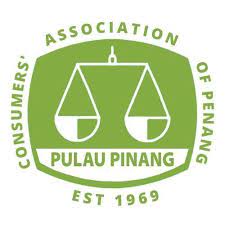
CAP press statement
In 2019, the sales value of bottled water in Malaysia was approximately RM698.45 mil, meaning that Malaysians spent that enormous sum that year for an advertised promise of safer, purer and healthier water.
But in reality plastic bottled water may not be safer, purer or healthier – it can be toxic, contaminated and harmful, and is a huge threat to the environment.
Hundreds of recalls of bottled water have been done because of contaminants ranging from arsenic, mould, faecal bacteria, yeast, and algae to kerosene, bits of glass, and even cricket particles.
Recent research has found more microplastics in bottled water than tap water.
Singapore authorities ordered a recall of bottled water from Malaysia in December 2020 after finding Pseudomonas aeruginosa – a bacterium found in faeces, soil, water and sewage – in it.
Six months earlier it recalled another brand of bottled water from Malaysia for the same reason.
Recently in the US, there were 5 reports of acute liver failure in children and 11 reports of non-viral hepatitis in adults after consuming bottled water. In the UK, Dasani bottled water from Coca-Cola had high levels of bromate in 2004. In 2007, Canada issued a warning for excessive arsenic levels in an imported brand of mineral water.
MICROPLASTICS: Higher amounts in bottled than tap water A 2018 global study found 93% of 259 bottled waters to contain microplastics – double the amount present in tap water. The average concentration was 325 microplastic particles per liter of bottled water. One sample contained more than 10,000 microplastic particles per liter.
Another 2019 study found that people who drink only bottled water might swallow 90,000 particles with their water each year, compared with just 4,000 for those who stick to tap water.
HARMFUL CHEMICALS/CARCINOGENS
Bottled water often contains plasticisers and other chemicals, which may interfere with the function of your endocrine system. A 2013 German study identified almost 25,000 separate chemicals in bottled water – at sufficient levels to cause a concerning level of hormone interference. Tap water did not show signs of this interference.
The Environmental Working Group in 2008 found bottled water to contain mixtures of 38 different pollutants, with an average of 8 contaminants found in each brand of bottled water.
Tests showed Coliform bacteria, caffeine, the pain reliever acetaminophen, fertiliser, solvents, plastic-making chemicals and the radioactive element strontium.
A 2006 Canadian study found that polyethylene terephthalates (PET) bottles that had been stored for 6 months leached a significant level of antimony (a toxic chemical) from the plastic into the water.
GREATER HARM TO THE ENVIRONMENT THAN TAP WATER
Researchers at the Barcelona Institute for Global Health in Spain has recently calculated that if every resident in Barcelona switched to bottled water, this would have 1,400 times more of an impact on ecosystems and 3,500 times higher cost to the environment for resources, than if the whole city were to drink tap water instead.
In the US alone, water bottle manufacturing takes 1.5 million barrels of oil every year – more than it would take to power 100,000 homes. A discarded plastic bottle takes 450 years to decompose. Nearly every piece of plastic ever made still exists today. More than 5 trillion pieces of plastic are already in the oceans, and by 2050 there will be more plastic in the sea than fish, by weight.
Clearly, plastic bottled water is a modern day “convenience” that we don’t need. It’s also 2,000 times more expensive than tap water, based on American figures.
As of late 2016, 82 high schools, colleges and universities across the world have implemented bottled water bans on their campuses.
The small town of Bundanoon, New South Wales (Australia) enacted a similar ban in 2009.
Municipalities have also banned bottled water from their facilities, such as the city of San Francisco, California.
CAP urges the following measures to be taken for health and environmental reasons:
* National, State Governments and local municipalities to ban bottled water from their facilities. Schools, colleges and universities should do the same.
* Progressively eliminate plastic bottled water sales in the country to safeguard public health.
* Improve the quality of tap water supplied to consumers.
* Make clean drinking water easily available in public places and gatherings, meetings and conferences.
“CAP also advises consumers to avoid commercially bottled water. Drink boiled tap water instead – it is safer, healthier, cheaper, and better for the environment,” said Mohideen Abdul Kader, President of the Consumers Association of Penang (CAP) in a press statement.


